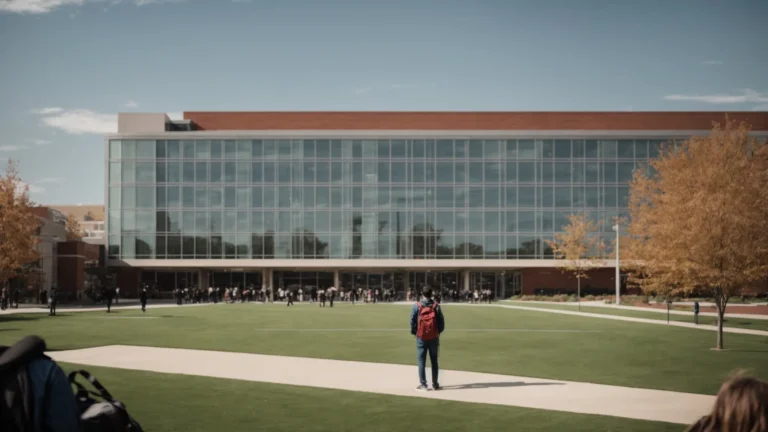Did you know that some of the most successful and thriving businesses launched in the middle of small-town USA? Small towns provide a lucrative business opportunity for aspiring entrepreneurs. Furthermore, Forbes notes that when you start a business in a small town, you can reap benefits such as larger and more affordable office space and a relaxed, laid-back feel. Even so, starting a small town business still requires careful research and a thorough understanding of your location.
If you’re interested in starting a small town business, but you’re unsure of what kind of business you’d like to launch, here are a few options to consider.
1. Bakery
Whether you’re selling cookies, pastries, freshly-baked bread, or specialty cakes for birthday parties and weddings, you’ll discover that a bakery is a lucrative business in a small town. Depending on the sort of baking you intend to venture into, this business may need some training.
A bakery might not need a huge marketing budget, either. Why? Because your employees and former clients can help drive the company through a word of mouth! Each wedding or birthday cake is being transported to an event, and events have lots of people—AKA potential clients. Therefore, it’s important for you to try and make every cake special.
2. Tutoring Services
All towns have schoolchildren, and if there are learners who need further help after school, a tutoring business can be supportive for both children and their parents. A tutoring business is especially fit for those who want to give back and grow their community.
You can open your tutoring business to supply services to learners ranging from the elementary level to high school and beyond. Pick subjects that you’re conversant with and passionate about, and you might easily link to school children in need of help.
3. Hair Salon or Barbershop
Although your town probably has a few salons or barbershops already, that shouldn’t discourage you. It might even work to your advantage—if you research that market subsector thoroughly. For instance, if the available salons or barbershops serve the needs of one demographic only, you can start catering to the needs of other demographics.
Furthermore, you can open a business that offers more than just haircuts. Explore other opportunities such as massage, professional makeup services, manicures, and pedicures. When shopping for barber chair or salon equipment, consider working with a reliable supplier who understands how difficult it can be getting your feet off the ground. keller4salon by Keller International is one of the most prominent industry players. What’s more? The company started inside a small garage and grew into a leading supplier of high-quality salon equipment and barber chairs in the United States. Businesses who started out as small-town suppliers, like Keller International, will better understand your pains and worries of starting a business and acquiring supplies. They might offer you guidance and excellent discounts on their products.
4. Pharmacy/Drugstore
A pharmacy or drugstore requires more preparation—from employing a pharmacist to obtaining insurance and setting up security precautions. However, if there isn’t a pharmacy in your local town, it can be an excellent opportunity to start one.
A pharmacy can be an excellent small town business idea if you’re a trained pharmacist or if you’re involved in the community medical work. A drugstore is undoubtedly vital in every town; however, if you choose to start an independently-owned drugstore, be cautious of competing with large chain pharmacies.
5. Franchises
Franchising means you don’t have to build a business venture from scratch by providing an initial investment. Instead, franchise owners are like agents of a brand. You open a shop and take care of things such as staffing and overhead expenses. The corporate end of the franchise offers metrics for success, marketing materials, and inspect your site regularly to certify it meets brand standards.
Try googling “franchises for sale near me“—the low-cost franchise opportunities that show up might surprise you. You’ll still be required to pay a franchise fee to the company that allows your franchise to operate, though.
6. Dry Cleaner
Even most countryside small town has residents who need professional cloth cleaning services. Furthermore, starting the first dry cleaning company in a small remote city means less completion, giving you a leeway to charge relatively higher than similar businesses in big towns. According to Statista, the dry cleaning sector in the US will total to $ 5.2 billion— this is undeniably a stable sector for new small business owners.
Are you a resident of a small-town community? If so, explore the possibility of the above business ideas thriving in your area.
Frequently Asked Questions (FAQs)
- What are the benefits of starting a business in a small town?
Small towns offer lower overhead costs, a strong sense of community, less competition, and a potentially slower pace of life. - What are some in-demand services for small towns?
Specialty food stores, educational services, personal care services, professional services, and home services are all in high demand by residents of small towns. - How can I research business ideas for my small town?
Talk to locals, analyze demographics, research market trends, and check the competitor landscape to identify gaps in your small town’s market. - Is a franchise a good option for a small-town business?
Franchises offer brand recognition, support, and guidance, but require investment and fees. Carefully research the specific franchise opportunity to ensure it aligns with your skills and the local market. - How can I market my small-town business effectively?
Build relationships in the community, leverage social media, utilize local advertising, encourage online reviews, and offer excellent customer service to build a strong reputation. - What are some financial considerations for starting a small business in a small town?
Create a business plan, secure funding, manage your budget carefully, and understand local regulations and permits before starting your business. - How can I overcome challenges of starting a business in a small town?
Limited customer base can be addressed by offering unique value. Lower disposable income can be tackled with competitive pricing. Limited access to resources can be overcome through online tools, conferences, and connecting with other small business owners. Marketing challenges can be addressed with creative, cost-effective strategies. - What are some success stories of small-town businesses?
Research online or ask local residents for inspiring stories of successful small-town businesses in your area. - What resources are available to help me succeed as a small-town business owner?
The Small Business Administration (SBA), local business development centers, and industry associations can all provide valuable support and guidance. - How can I adapt my business idea to the specific needs of my small town?
Conduct market research to analyze local demographics, existing businesses, and consumer preferences to tailor your business idea to the unique needs of your small town.





